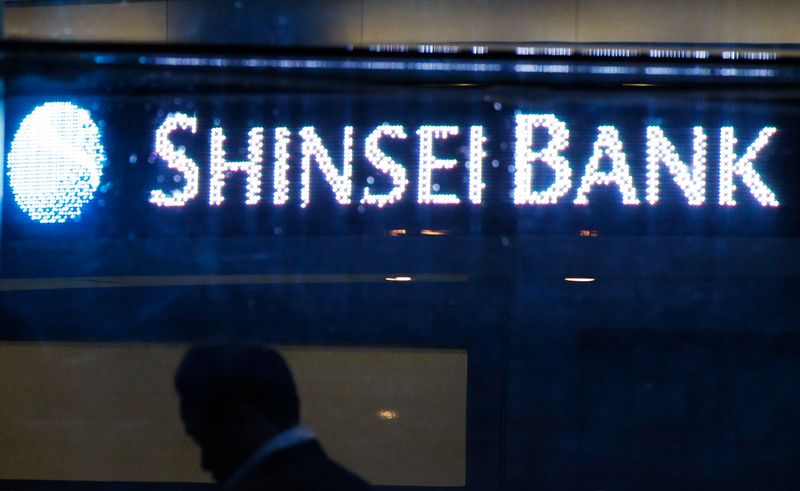By Makiko Yamazaki
TOKYO (Reuters) -Proxy advisory firm ISS followed rival Glass Lewis & Co in recommending shareholders of Japan's Shinsei Bank Ltd vote for the lender's plan for a poison pill defence against an unsolicited $1.1 billion bid from SBI Holdings Inc.
In a report dated Nov. 7, ISS said the takeover defence was warranted partly because SBI has failed "to present specific plans to be implemented once it controls Shinsei Bank, causing uncertainty for shareholders."
ISS, formally Institutional Shareholder Services Inc, also pointed out that SBI's partial offer would leave shareholders unable to tender "in a position of minority shareholders of a listed company, whose liquidity will be significantly low."
Recommendations from ISS and Glass Lewis typically impact how foreign investors vote. Such investors account for nearly 30% of Shinsei's registered shareholders.
Mid-sized bank Shinsei opposed SBI's approach last month, saying that the offer could hurt interests of minority shareholders and that the price was too low. SBI, which owns an online brokerage and a bank, holds around 20% of Shinsei and wants to raise that to up to 48%.
Shinsei Bank "appears to try to leverage the pill as a tool of negotiation with SBI Holdings to extract better terms by attaching two reasonable conditions, from which shareholders should benefit," ISS said.
SBI declined to comment on the ISS report.
The online financial conglomerate, which has said it can overhaul the mid-sized lender, has promised to make every effort to repay the 350 billion yen ($3.09 billion) in public money Shinsei received during a banking crisis two decades ago.
ISS said SBI's business plan is not specific.
On Friday, Glass Lewis said SBI has provided "no measurable alternative to the status quo".
The focus is now on how the government, which owns about 20% of Shinsei, will vote on the poison pill at the shareholders meeting on Nov. 25, which needs a 50% majority to pass. Government sources said it hasn't decided yet.
The SBI-Shinsei battle comes at a time Japan is witnessing a rise in hostile takeovers. But investors are also watching to see if, under a new prime minister, it will roll back some pro-market policies.

Shinsei's shares were down 2.4% in Monday afternoon trading, compared with a 0.25% decline in the benchmark Nikkei index.
($1 = 113.3500 yen)